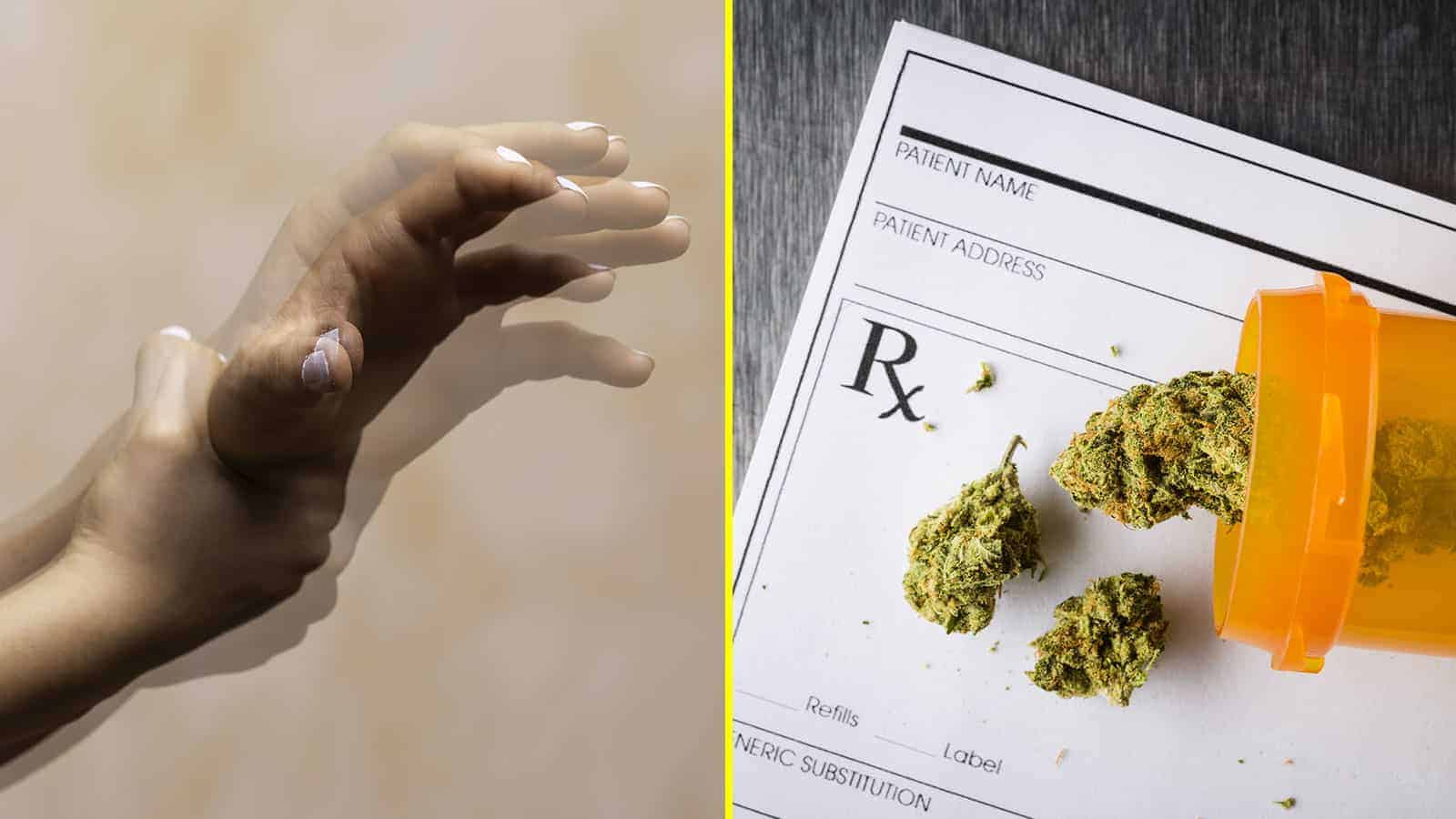Medical marijuana, or medical cannabis, is marijuana that is produced, marketed, and consumed for health purposes.
In the United States, medical marijuana consumption is legal in 33 states, four territories, and the District of Columbia. However, all cannabis use remains illegal at the federal level.
In Canada, marijuana is legal for any purpose and any amount. Besides Uruguay, Canada is the only sovereign country where marijuana is entirely legal.
Medical marijuana is used to treat or reduce the symptoms of multiple conditions. This list includes Parkinson’s Disease (PD). Without a doubt, medical marijuana for Parkinson’s Disease has gained a large following in the U.S. and elsewhere.
In this article, we will discuss more medical marijuana and medical marijuana for Parkinson’s. Among the issues discussed include:
- What medical marijuana is – and how it works
- The reasons medical marijuana for Parkinson’s is a big issue
- The idiocy of the U.S. Food and Drug Administration (FDA)
The main part of this article includes five real-life examples of people with Parkinson’s who have gotten relief from medical marijuana. Later, you will hear their stories. Finally, you’ll learn why some have become adamant proponents of medical marijuana for Parkinson’s Disease.
What is Medical Marijuana?

“Patients…report may benefits of CBD, from relieving insomnia, anxiety, spasticity [muscle spasms], and pain to treating potentially life-threatening conditions such as epilepsy.” ~ Peter Grinspoon, M.D. (source)
Doctors prescribe medical marijuana, or cannabis and cannabinoids, for a specific therapeutic purpose. However, medical marijuana differs from recreational marijuana in some important ways, namely in THC levels. Medical marijuana strains often vary in potency (strength), which is usually determined by THC content. More on THC later.
There are over 100 chemicals in the marijuana plant, known as cannabinoids. Each compound may have a different effect, depending on one’s physiological makeup. The two main chemicals often discussed in medical circles are CBD and THC.
The real name for THC is tetrahydrocannabinol. It is the cannabinoid that produces marijuana’s psychoactive (affecting the mind or mental processes) effects. CBD is short for cannabidiol. And that is the primary marijuana substance that does not induce any psychoactive effects. Typically, medical marijuana is higher in CBD and lower in THC, which results in less of a “high.”
So, let’s first discuss how marijuana may help people with Parkinson’s.
A Look at Parkinson’s Disease
“Parkinson’s disease (PD) is a neurodegenerative disorder. It affects dopamine-producing (“dopaminergic”) neurons predominately in a specific area of the brain called substantia nigra. … People with PD may experience: Tremor, mainly at rest and described as a pill-rolling tremor in hands.” ~ Parkinson.org (source)
Parkinson’s disease (‘PD’) is an often life-changing medical condition that severely limits mobility. Because it is a “movement disorder,” Parkinson’s disease causes balance problems, slowness, stiffness of muscles, and tremors.
Parkinson’s results from a decrease in dopamine levels of the brain. The deterioration and loss of nerve cells in the brain region called the substantia nigra, the area of the brain responsible for producing dopamine. Significant brain dopamine loss can trigger adverse symptoms, such as those seen in PD.
Parkinson’s is a lifelong, progressive disease. Of course, progressive disease is one in which the associated symptoms tend to worsen over time. Further, the symptoms of Parkinson’s are placed into two categories: motor (movement) and non-motor.
Motor symptoms of Parkinson’s include the following:
- Tremor (shaking)
- Slowed movement
- Muscle rigidity
- Loss of automatic movements
- Speech changes
- Impaired balance and posture.
Non-motor of PD are various and may include the following:
- Anxiety
- Cognitive impairment
- Constipation
- Depression
- Fatigue
- Low blood pressure
- Restless leg syndrome
- Sleep disturbances.
Parkinson’s is a highly personalized disease. The associated symptoms, life impact, and progression often differ from person to person.
An estimated 1 million people in the U.S. are affected by Parkinson’s. Additionally, another 6 million people worldwide have the condition.
Marijuana for Parkinson’s Disease
“…marijuana is said to be a fantastic muscle relaxant, and people swear by its ability to lessen tremors in Parkinson’s disease.” ~ Peter Grinspoon, M.D. (source)
One of, if not the most problematic symptoms for those with Parkinson’s, is tremors or muscle spasm. There are various types of tremors and muscle spasms, but the most common is the resting tremor. This is an uncontrollable shaking that worsens when the patient is at rest. Movement typically provides some relief in tremor frequency.
It is this common symptom of tremor that seems to be suppressed with medical marijuana. In a 2014 Israeli study of 20 Parkinson’s disease patients, all reported symptom improvement. Various Parkinson’s symptoms were improved, including tremor. The symptoms of bradykinesia (motor slowness), sleep difficulties, and pain levels also decreased. Moreover, researchers did not observe any adverse effects of the drug users.
What remains unclear is how medical marijuana acts on the brain and body to reduce tremor symptoms. Doctors know that muscle tremor worsens with stress. Because marijuana can produce feelings of calmness, relaxation, or euphoria, this inherent stress response reduction may reduce associated tremor.
Let’s read some firsthand accounts of Parkinson’s patients who find relief from medical marijuana.
5 Real-Life Examples of People Who Get Relief From Medical Marijuana
Ben Stecher, Quora
Ben Stecher is a 32-year-old Canadian diagnosed with Parkinson’s three years ago. Stecher is passionate about Parkinson’s research, traveling the world to keep abreast of all the latest findings.
For Stecher, his experience was a bit mixed at the beginning, saying:
“When I initially start taking [medical marijuana] … my symptoms in general (felt) a bit worse! Then [the symptoms] start to level off and, maybe an hour or two later, I do feel some benefit with tremor and rigidity.”
Besides experiencing relief from his tremor and ‘rigidity’ (stiffness) symptoms, Stecher doesn’t underestimate the psychological benefits that marijuana provides. Parkinson’s symptoms can be quite severe, causing significant stress. Therefore, medical marijuana helps Stecher calm down and settle into his life.
Kim Bulpitt, Quora
“As a Parkinson’s victim, it helps relax your body, so you don’t shake as much or in my case, spasm as much. Dopamine is lacking in our brains, so a high is not achieved to the same degree as someone else. Sleep is also a problem with Parkinson’s, so it also helps with that. Could not survive without it.”
A Quora user named Kim Bulpitt notes the spasm reduction benefits of medical marijuana. In addition, Ms. Bulpitt mentions the sleep-enhancing benefits of medical marijuana, which have been demonstrated in various studies.
Because marijuana can produce extended feelings of calmness and relaxation, the inherent reduction in the stress response may act to improve sleep quality.
‘chronicallychillbun,’ Reddit
A Reddit user by the name of ‘chronicallychillbun’ offers up her Parkinson’s and medical marijuana story:
“…TOPICAL marijuana products are amazing!! Seriously like a topical muscle relaxer. Won’t get into the bloodstream. CBD topicals seem to be effective too.”
This Reddit user is talking about medical marijuana products that users apply by rubbing into the skin. While she doesn’t specify the symptom that topical marijuana products help to ease, she is likely referring to muscle spasm.
She is also grateful for not having to experience the often hellish side effects of prescription medicine: “…I get true lasting relief without feeling the side effects of regular prescription muscle relaxers and pain pills, which don’t work nearly as well.”
‘BookPherq,’ Reddit
For a Reddit using the handle ‘BookPherq,’ medical marijuana has eased their pain symptoms. BookPherq says, “I’m happy to relieve debilitating pain in minutes with no psychotropic effects. From crying and gripping the sheets to doing the dishes and making dinner…”
The Reddit user doesn’t specify the types of pain they go through. However, per parkinson.org, the kinds of pain experienced with Parkinson’s often include:
– aching or burning pain from the skeleton or muscles
– sharp, sudden pain from a nerve or nerve root
– aching or pulsing pain from continuous twisting and writhing
– “pins and needles” pain symptoms that radiate from a nerve or nerve root
‘ryno68’, Reddit
The Reddit user ‘ryno68’ says, “I have a fair amount of depression & anxiety with my PD, and all forms (high THC, high CBD) seem to benefit this. I am much less of a sad, anxious A-hole after a dosing. High CBD strains are best for my muscle stiffness, which has become more problematic. It also relieves stress quite well.”
The Reddit user ‘ryno68’ also mentions the valuable psychological benefits of medical marijuana for his Parkinson’s. As stress may exacerbate muscle movement difficulties in PD patients, the psychological and psychosomatic benefits of cannabis use are pertinent here.
Final Thoughts: Ending the Stigma of Marijuana Use
“The reality is that things change; the question is, how will I perceive that change, and am I willing to change along with it?” ~ Michael J. Fox, actor, Parkinson’s patient and founder of the Michael J. Fox Foundation (source)
So let’s be clear: medical marijuana may or may not ease one’s symptoms of Parkinson’s Disease. It is by no means a miracle drug. Thus, you should not think of it as such.
However, the fact that marijuana remains illegal in most areas of the world is ignorant at best and devastating at worst.
Despite the asinine governmental restrictions on marijuana in the U.S., enough research proves the efficacy of marijuana on various ailments. Unlike prescription medication, these same studies note a near lack of severe side effects from marijuana use.
Therefore, the fact that a person must travel across the country or around the world to see if medical marijuana will help ease their debilitating symptoms is immoral. But still, these facts remain:
– Prescription drugs are legal. Many are also harmful and ineffective (see: opioids.)
– Alcohol is perfectly legal. Regardless, the misuse of alcohol kills millions of people every year and ruins the lives of countless others.
– Medical marijuana, properly cultivated and consumed responsibly, offers many health benefits. Further, it has little to no side effects.
Anyone else see the problem here? It’s time to end the ignorant stigmatization of marijuana.


















